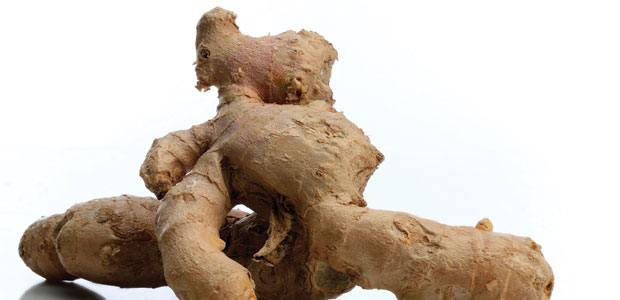Advertisement
Treating Tummy Troubles
Natural remedies for digestive health

Digestive health is one area where natural remedies have scored big. From ginger to lifestyle changes, and from peppermint to hypnotherapy, natural remedies are very effective in supporting good digestive health. This month alive looks at the latest research on this good-news story.
Nearly everyone has indigestion at one time or another, but those who experience ongoing symptoms of abdominal pain often rely on self-treatment with complementary and alternative medicine (CAM).
In 2001 researchers Langmead and Rampton reviewed self-care among patients with long-term symptoms of gastrointestinal (GI) disorders. They found that one in four patients
(26 percent) with GI symptoms and one in two (48 percent) with irritable bowel syndrome (IBS) used CAM therapies.
The modalities of choice included herbal and nutritional treatment, mind-body care such as hypnotherapy, and energy-based work through acupuncture.
Herbal treatment
Dr. Kirsten Tillisch of the University of California, Los Angeles School of Medicine, confirmed this pattern of self-care in a review of various CAM modalities and digestive health published in the journal Clinical Medicine in June 2007.
Tillisch found doses of peppermint oil and artichoke extract to be widely available and well studied for their relief of gastric upset, but decided the results were inconsistent because clinical trials were small or used poor research methods.
Her research found contradictory results stemming from a lack of standardized doses, ingredients, and outcome measures, and as a result, she decided recommendations were
difficult to make.
Nevertheless, research published in the April 2007 American Family Physician found a combination product that includes peppermint and caraway oils to be moderately effective in the treatment of indigestion, likely because of the muscle-relaxing effects of the peppermint oil.
Mind-body care
Hypnosis and biofeedback have also proven effective in reducing the stress levels that often aggravate indigestion and other GI disorders such as gastroesophageal reflux
disease (GERD).
A letter published in the British Medical Journal in 2008 reminded health care practitioners that hypnotherapy is recommended in the long-term management of indigestion because it dramatically reduces medication use.
Hypnotherapy, along with biofeedback and peppermint oil enteric-coated capsules, is among the most promising alternative therapies for children with frequent tummy trouble, reported a study published in the October 2008 issue of Current Opinion in Pediatrics. Researchers predict that an integrative approach that blends these interventions may become increasingly common in the treatment of stomach complaints in children.
Biofeedback relies on the patient’s ability to influence body function through real-time measures such as blood pressure, heart rate, skin temperature, sweat gland activity, and
muscle tension.
Verbal feedback provided by a therapist is also important. A study reported in the July 2008 Nature Clinical Practice Gastroenterology and Hepatology found the benefits of biofeedback last at least 12 months.
Acupuncture
A number of studies published in 2008 found acupuncture and acupressure—particularly stimulation of acupressure point P6—to be effective in relieving nausea and vomiting. From patients in postoperative care to those in palliative care, acupuncture proved effective in reducing the occurrence of these gastric symptoms.
These complementary therapies offer clear alternatives to the conventional medications such as the antacids, H2 blockers, or proton pump inhibitors that are often prescribed for digestive disorders. In consultation with your health care practitioner, these complementary options should be considered.
Quick fixes for indigestion or heartburn
Avoiding symptoms
- Chew on raw ginger (or take prepared ginger tablets).
- Drink aloe vera juice.
- Eat a handful of raisins.
Treating symptoms
- Drink a mixture of water and baking soda.
- Consume five to 10 unsalted, raw almonds.
- Suck on a peppermint candy.
Why digestive health is important
Ranging from uncomfortable to debilitating, digestive disorders prevent our systems from absorbing and assimilating nutrients, robbing our bodies of protein, fats, vitamins, minerals, and antioxidants needed for optimal health.
Common food allergens
Check with your health care practitioner if you suspect you have allergies to any of the following foods:
- Dairy
- Eggs
- Wheat
- Peanuts
- Tree nuts (walnut, cashew, almonds)
- Seafood (bass, cod, flounder)
- Shellfish (crab, lobster, shrimp)
- Soy
When to seek advice
See your health care practitioner if you experience any of the following signs or symptoms:
- Persistent or recurring abdominal pain
- Persistent nausea
- Vomiting, especially if accompanied by blood in the vomit
- Unexplained weight loss
- Persistent loss of appetite
- Bloody stools
- Persistent indigestion or indigestion accompanied by shortness of breath, sweating, or pain radiating to the chest, neck, or arm (possible heart attack)
Source: MayoClinic.com




